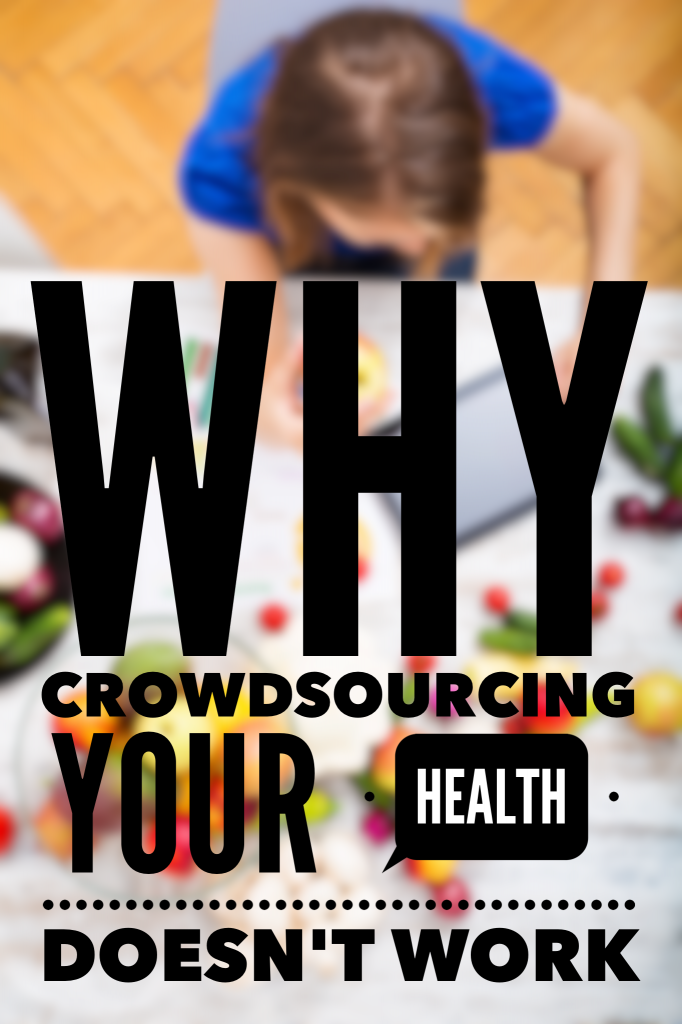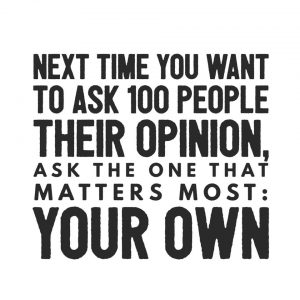I LOOOOOOOVE what I do. I love talking to folks about their health. The more I learn about it, I think the body is an amazing organism, and the way it works is brilliant.
The body’s primary goal is to keep us alive. So, it will do everything that it needs to do to preserve our life. Sometimes it doesn’t seem to make a lot of sense, or is counteractive to what we want (like losing body fat. We want to look good, but the body sees that fat as storing energy for some famine-day when it might need it!), but most everything it does, it does to preserve our life.
A few weekends ago, I was talking to a woman I had just met about her health.
She was complaining that over the past few months, she’d gained almost 30 lbs! She was frustrated – and understandably! I don’t think that anyone wants to gain that much weight in such a short amount of time – regardless of whether it’s fat or muscle. It’s just too much to manage.
But once she found out I was a health coach, she started telling me about how she started gaining when she stopped smoking and everything that she had done combat the weight gain.
I’m always a bit hesitant in these situations because I’m never quite sure what a person is looking for from me: are they just wanting to be seen and heard? Are they just making conversation? Or are they serious about wanting to change?
Now, we were at a party – so I couldn’t do a lot for her in a social setting, but through some questioning, I found out a lot of info. Specifically, there was one thing she said that set off alarms: she wasn’t moving.
Even though she lives on the beach, she said that she wasn’t walking because when she walks for more than 45 minutes, she feels bad. Like – physically bad. She thought it was from the heat.
And feeling bad is certainly a barrier to exercising. But how do we get around it? What can we do about it?
Here’s the good news: for things like walking and general movement, it doesn’t matter if it’s all done in one chunk, or if it’s several bursts throughout the day. We can break it up and still get many of the same benefits. So, if longer bouts of exercise don’t work with your schedule or physiology, you can break it up without penalty.
You can’t walk for 45 minutes, but you can for 15? Great! Do that. Walk for 15 minutes 3 times. In fact, it might even be better to do it that way if you sit a lot – because then you’re breaking up the inactivity.
Always a good rule of thumb: Do what you can. Something is always better than nothing.
So, that was the advice that I gave her: Move. Take short walks more frequently. It’s not going to fix everything, but it IS a start.
I ran into her again the other day, and followed up with her: asked how her short bursts of movement were going?
She hasn’t been doing it.
I mean – free advice is great. But how often do we ask for advice on something, and then not follow through with it?
And don’t misunderstand. I’m totally not judging. I do this kind of stuff too. I ask for advice, and then don’t follow it.
And so lately, I’ve been thinking a more about crowdsourcing.
If you’re on any social media, I’m sure you’ve seen it: a post from a friend asking for advice: “what should I do about _________?” Or “what’s the best ________?”
And there are certain situations where crowdsourcing is appropriate:
- Have you tried this product/service? What do you think about it?
- Looking for recommendations for a plumber/restaurant/driving directions
But imagine if you asked your friends, “What car should I buy?”
You’d never crowdsource that on Facebook. It’s too important of a decision. Yet, somehow folks crowdsource health related questions ALL the time!
Crowdsourcing for your health just doesn’t seem to make a lot of sense. It doesn’t work. And there are a few reasons for that:
 Your audience has nothing invested in your result
Your audience has nothing invested in your result
Although folks mean well, and want to be helpful, when you ask for advice from the interwebs, the responses can be all over the map. And it doesn’t matter much if you follow their advice or not – because it doesn’t impact their life.
When I started out in my fitness journey, it was around 2001. Internet forums were just starting to take form, and Facebook or MySpace weren’t a thing yet. I was pretty active on a very large health & bodybuilding based forum. I remember asking a question about losing body fat, and some random dude (he was probably 20 years old) answered, “eat a sandwich”. O.o
This guy didn’t care if I gained weight or lost weight. It was a flippant response.
It was basically the antithesis to the answer I was seeking – AND will add that I would give to someone asking a similar question today. I had spent months previous to this post cleaning up my diet. I had sworn off sandwiches, bread, pasta, and all of the other carby goodness that exists in the world. I was NOT looking for “eat a sandwich” as an answer! Ha!
Folks only pull from their own experience
Ask folks how to lose weight, and you’ll get answers ranging from ‘Go Vegetarian’ to ‘Go Keto’ to ‘Start running’ because that’s perhaps what they had success with that themselves. But does that mean that technique is right for you or will work for you?
So, like in the example that I mention above, when we ask people for help, they answer through their own lens: This is what worked for me (or my sister, or my friend).
If I’m asking for advice on how to lose weight as a 55 year old post-menopausal woman, is a 25 year old man the best person to take advice from? If he’s a trainer, he may know basic physiology, but does he know women’s bodies, and how our bodies change as we age?
When I started out in fitness, my older clients used to tell me about how their body changed, and although I understood, it wasn’t until I experienced it for myself that the lightbulb went on; I understood and could really be empathetic and compassionate in my solutions for them.
Everyone answers from their own point of view.
They usually don’t have the full back-story
There’s a reason why you’re asking and haven’t come up with a solution yourself. It’s because it’s complicated. But you don’t want to put all that shiz up on the internet. So, you gloss over it. And then, you don’t get the answer you were looking for. Because – details.
When we ask folks for opinions/advice, they usually don’t respond with questions. They should, but they’re on to the next post. But getting the full story is so super important if you’re really looking for advice.
When I work with my clients on specific problems, we become detectives – trying to flush out what could be the culprit of their stalled results?
It’s not easy, but the detective work is done in the tiny little details.
For example: the woman who I suggested do short bursts of exercise didn’t initially offer up information that she wasn’t being active. Initially, she blamed her weight gain on the fact that she’d recently given up smoking. It was only through questioning her about what events led up to the weight gain did she give me the information that I needed.
Getting the whole story can be tedious. But it’s necessary.
We only want to give a snapshot. But to understand and figure out what exactly our bodies are doing, we need to understand the whole picture.
 So much information is overwhelming
So much information is overwhelming
When we crowdsource for information we get tons of feedback. It can be overwhelming.
More often than not, we already know what we need to know. And instead of looking for more input, it can be more helpful to have someone help us filter out all of the noise, and focus in on our needs and next steps.
But I’ve stopped giving advice to folks that I meet at social events or folks who ask health questions online.
It’s counterintuitive to the fiber of my being – because I’m a helper. I want everyone to be healthy and live long active lives. But over the years, I’ve learned something: We don’t value what we get for free.
We need to have some skin in the game. Whether that skin is money or effort or something. We need to have something invested in the outcome, or we don’t value what we have.
If you don’t have the funds, don’t let that stop you. Many folks barter. Instead of crowdsourcing, sometimes it’s best to find someone you trust, who’s knowledgeable in that field and ask them.
If you’re looking for a coach, like me, there are a few ways that you can get to know me better:
- Sign up for my weekly email list. I write about topics that are relevant to women in our life stage.
- I offer No Charge consultations to see if we’re a right fit. No sales pressure – just a get to know me.
- OR do both!